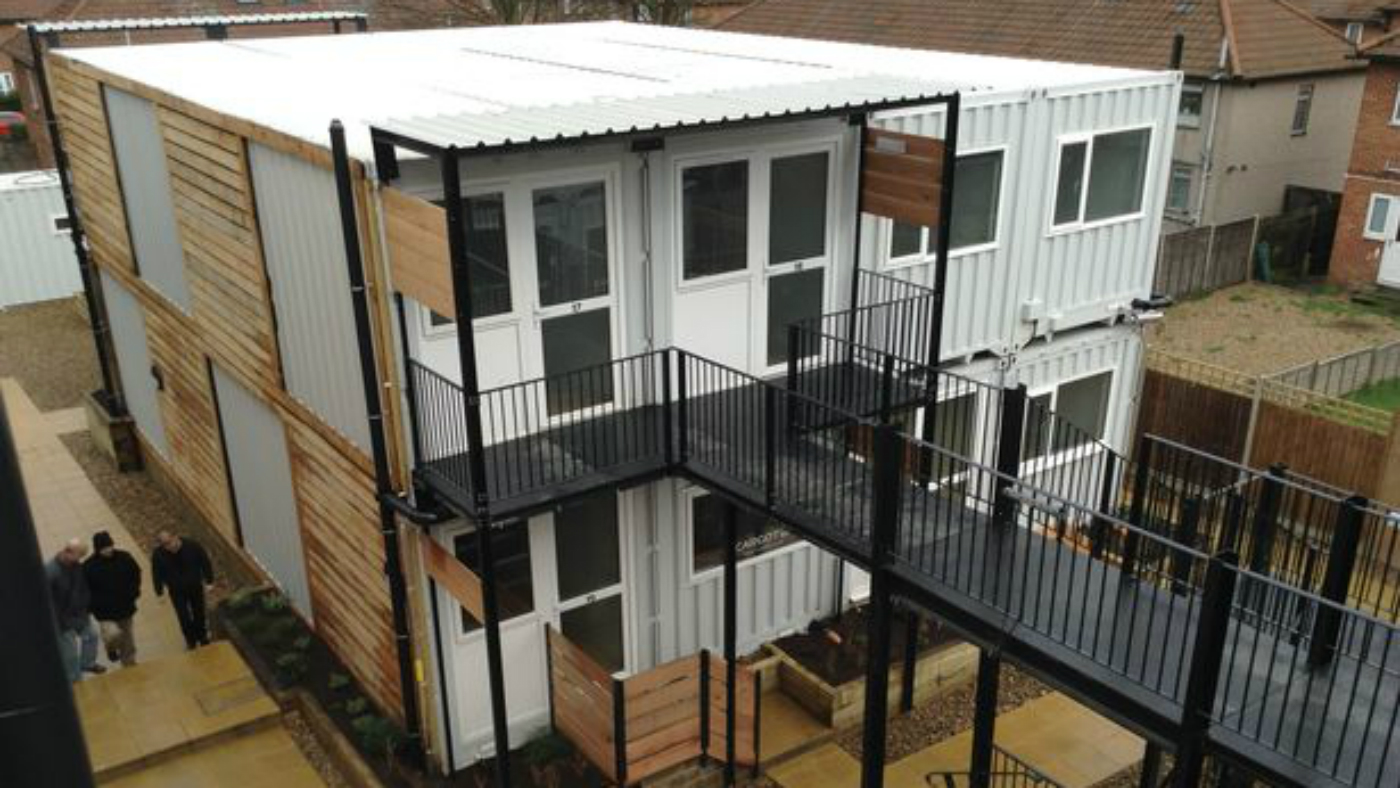The councils using shipping containers to house homeless children
Families are being forced to live in unsafe, disruptive and overcrowded conditions

A free daily email with the biggest news stories of the day – and the best features from TheWeek.com
You are now subscribed
Your newsletter sign-up was successful
Some of England’s 210,000 homeless children are being temporarily housed in shipping containers, a report says.
The Children’s Commissioner for England says that 124,000 children are officially homeless, with a further 90,000 “sofa-surfing” owing to a lack of permanent housing.
But insufficient data means the real figure could be even higher, says Sky News.
The Week
Escape your echo chamber. Get the facts behind the news, plus analysis from multiple perspectives.

Sign up for The Week's Free Newsletters
From our morning news briefing to a weekly Good News Newsletter, get the best of The Week delivered directly to your inbox.
From our morning news briefing to a weekly Good News Newsletter, get the best of The Week delivered directly to your inbox.
The homelessness crisis means children are being “robbed” of their childhoods by growing up without permanent homes and instead being forced to live in office blocks and shipping containers that are not fit for purpose.
The accommodation can be unsafe, disruptive and overcrowded, with no space for children to do their homework or play, says The Guardian. It is frequently in bad condition, isolated from family support networks and schools, and plagued by crime and antisocial behaviour.
“Something has gone very wrong with our housing system when children are growing up in B&Bs, shipping containers and old office blocks,” said Children’s Commissioner Anne Longfield.
“It is a scandal that a country as prosperous as ours is leaving tens of thousands of families in temporary accommodation for long periods of time, or to sofa surf.”
A free daily email with the biggest news stories of the day – and the best features from TheWeek.com
The report, entitled Bleak Houses, warns that thousands more children are at risk of becoming homeless thanks to financial instability. As well as the 210,000 homeless children in England, a further 375,000 are in households that have fallen behind on rent or mortgage payments.
Why shipping containers?
The main advantage of shipping containers is that “they’re so much cheaper compared to the costs of labour and materials needed to build a more traditional home”, says the World Economic Forum.
A spokesperson for Ealing Council in west London, one of the first councils to use shipping containers, said: “Made from heavily modified shipping containers, the homes offer a stable, comfortable environment for vulnerable homeless families who have nowhere else to go.
“The housing crisis means we have no choice but to use temporary accommodation to house the sheer volume of homeless households that present to us,” the Evening Standard reports.
A spokesperson for the Local Government Association (LGA) blamed a £159m funding gap in councils’ homelessness services budgets and said the Government needed to give councils more power and money to build the right infrastructure.
Why are shipping containers so bad?
Shipping containers are more susceptible to changes in climate. They are “blisteringly hot in summer and freezing in the winter months”, says Longfield.
“Steel is an excellent conductor, meaning that shipping container homes can easily turn into an oven or an icebox depending on the weather,” says the World Economic Forum.
Corelle Tertullien, a mother of two who moved into a container in west London in December while heavily pregnant, told Sky News that a lack of circulation in the containers means they are prone to overheating, which causes condensation to drip from the ceiling.
She said: “We’re all sleeping in one bed at the moment because I can’t fit the cot in here, there’s no space.
“There’s no bathtub. Originally I was washing him [her baby] in the kitchen sink, but now I wash him on the floor, getting a cup and washing him that way, because he’s too big to fit in the sink now.”
And the Bleak Houses report says that shipping containers housing children are often located on temporary sites earmarked for future development, further reducing the feeling of continuity for inhabitants.
Antisocial behaviour around the shipping containers means that parents are often forced to keep their children inside.
The report quotes Danielle, a mother of three living in a container: “Cigarette smoke would come in under my door and a man threatened to kill me when I asked him about it.”
Polly Neate, chief executive of housing and homelessness charity Shelter, said she is frequently told of families being forced to live in “downright dangerous accommodation” because they had nowhere else to go.
Which councils are using shipping containers?
As well as London councils, the BBC says there are reports of shipping containers being converted for use in Bristol and Cardiff.
And they are being used as affordable housing units by Epping Forest District Council in a bid to tackle the growing housing crisis, reports the Epping Forest Guardian.
Meanwhile, Wrexham Council in north Wales plans to use shipping containers for homeless people, says Public Sector Executive.
And “REACH Homes, a community interest company, is planning to build 600 shipping container homes in Sheffield”, says World Economic Forum.
LGA housing spokesperson Martin Tett said councils wanted to find every family a permanent home, but “the severe lack of social rented homes available in which to house families means councils have no choice but to place households in temporary accommodation”.